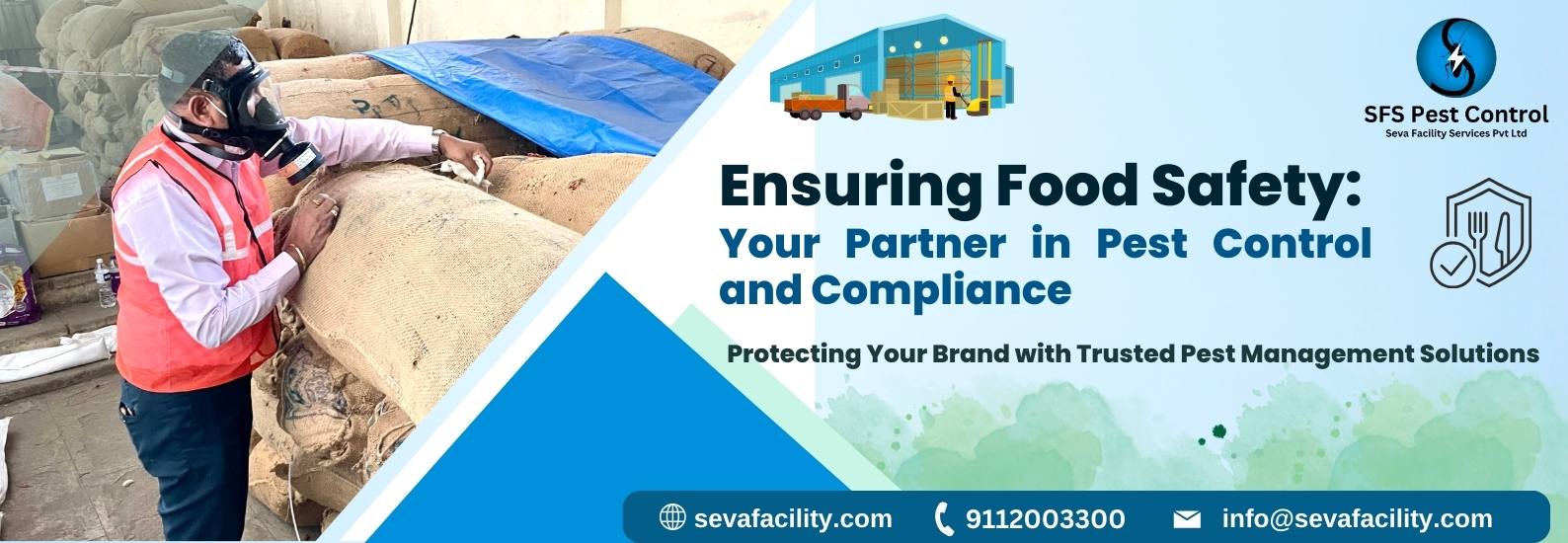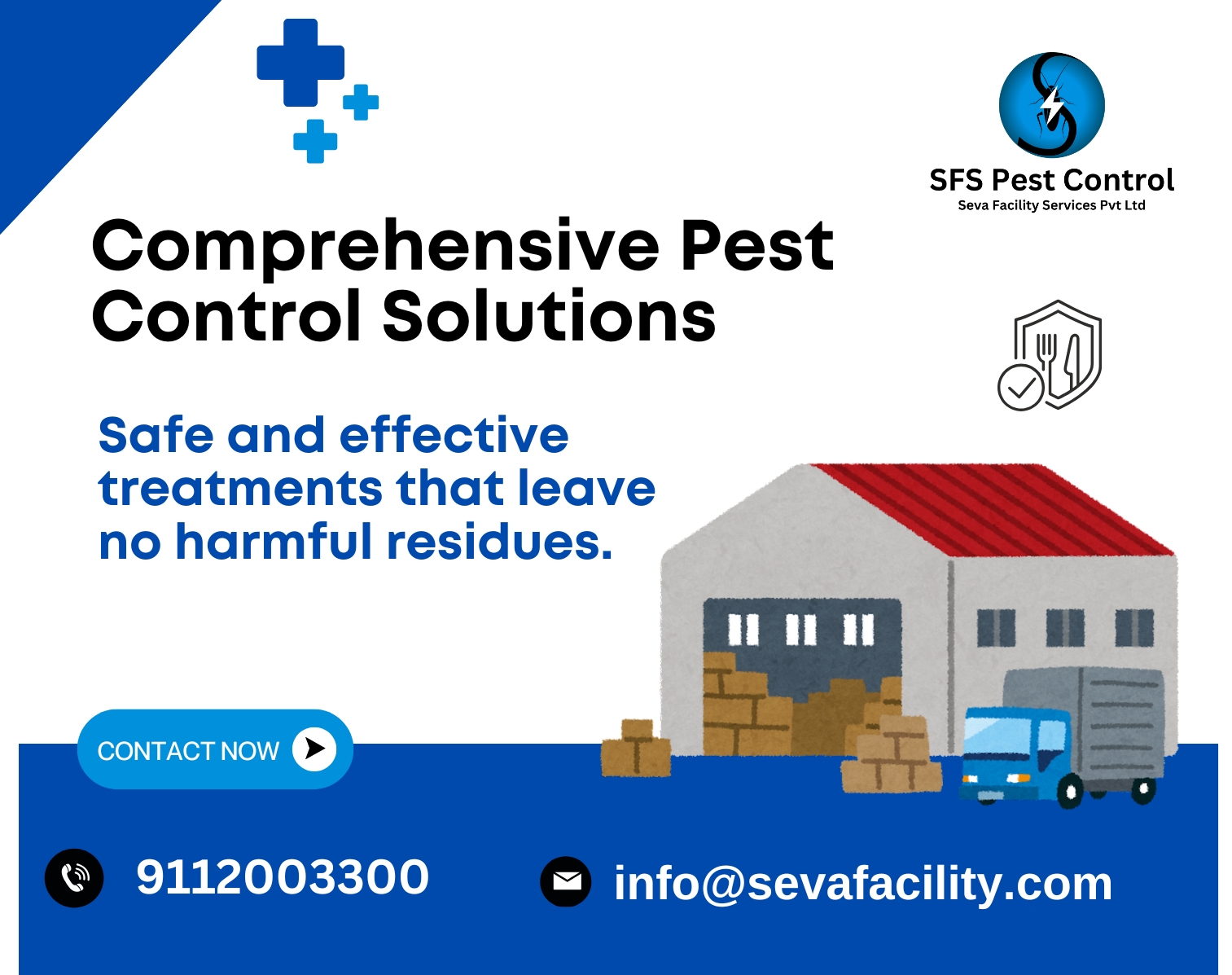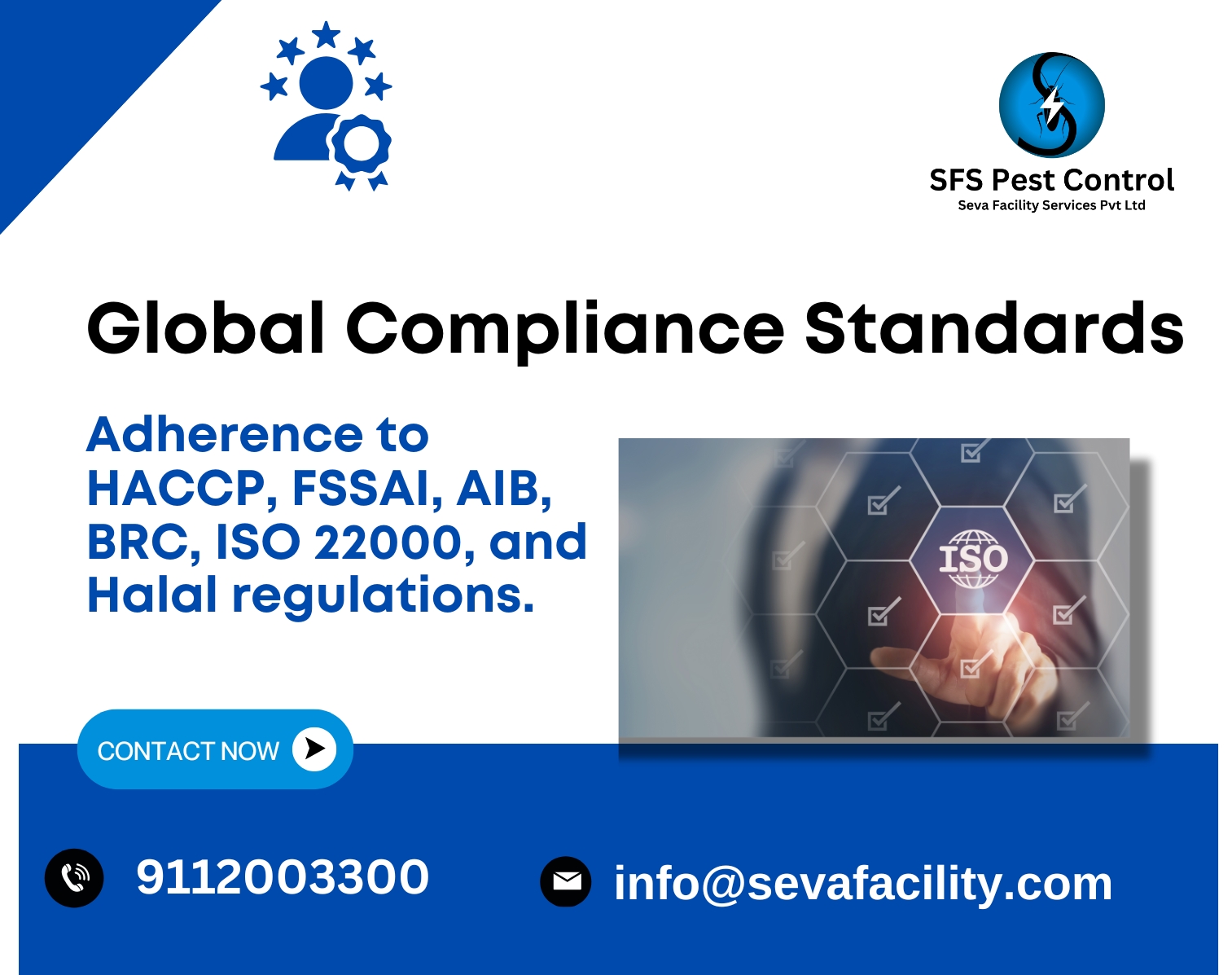"Food Safety First:
Pest Control & Global Compliance in Food
Industries"

"Healthy Food, Safe Food – Because Every Bite Matters!"
When you think of top food brands like Nestlé, Amul, or McDonald's what do they all have in common? Beyond taste and quality, food safety is their top priority. No matter how delicious a product is, it won’t stand a chance if it's not safe to eat. That’s why global food industries follow strict safety regulations, ensuring their products meet international health and Hygine Standards.
One of the biggest threats to food safety?. A single contamination incident can lead to recalls, health risks, and damage to a brand's reputation. That’s why effective pest control isn't just about eliminating pests it’s about preventing them from becoming a problem in the first place.

Pest Control & Global Compliance Standards
To ensure food safety, companies worldwide adhere to various compliance standards like:
- HACCP (Hazard Analysis and Critical Control Points)
- AIB (American Institute of Baking)
- BRC (British Retail Consortium)
- HALAL Certification
- ISO 22000 (Food Safety Management System)
- FSSAI (Food Safety and Standards Authority of India)
Each of these sets strict guidelines to prevent contamination and ensure Food remains pure, fresh, and safe for consumers.
HACCP (Hazard Analysis and Critical Control Points) – The Gold Standard for Food Safety
HACCP is the foundation of food safety, helping companies identify and control risks before they become serious hazards. The system follows seven key steps:
- Identify Hazards: Rodents, insects, and other pests can introduce bacteria and toxins into food.
- Set Critical Control Points (CCPs): Storage areas, kitchens, and food handling zones must be monitored for pest activity.
- Establish Limits: Strict thresholds for hygiene and fumigation are set.
- Monitor Procedures: Routine inspections and pest tracking systems are used.
- Take Corrective Actions: If an infestation occurs, immediate actions prevent further contamination.
- Verify Safety Measures: Regular audits ensure pest control methods are effective.
- Keep Records: Documenting pest control activities ensures compliance and traceability.
FSSAI (Food Safety and Standards Authority of India) – India's Food Safety Authority
In India, FSSAI ensures food businesses maintain hygiene through:
- Proper storage & sealed packaging to prevent pest contamination.
- Regular cleaning & maintenance of food processing areas.
- Professional pest control services to handle infestations safely.
- Immediate action protocols to remove any risk of contamination.
FSSAI compliance is mandatory for all food businesses, ensuring safety from farm to fork.
AIB, BRC, Halal & ISO – What Do They Mean?
- AIB (American Institute of Baking): AIB sets strict guidelines for food production facilities, focusing on Integrated Pest Management (IPM), sanitation, and food defense. Businesses must have structured pest control plans, approved chemicals, and detailed documentation to ensure compliance.
- BRC (British Retail Consortium): A globally recognized standard ensuring that food businesses implement documented pest control plans, conduct regular inspections, and employ trained professionals to minimize contamination risks.
- Halal Certification: This certification ensures that food products comply with Islamic dietary laws. It also verifies that pest control methods do not involve prohibited substances or contaminate the final product.
- ISO 22000 (Food Safety Management System): A global standard that integrates HACCP and pest management into a company’s overall food safety program. It ensures systematic risk assessments, monitoring, and continuous improvement in food safety measures.
AIB, BRC, Halal & ISO – What Do They Mean?
- AIB (American Institute of Baking): AIB sets strict guidelines for food production facilities, focusing on Integrated Pest Management (IPM), sanitation, and food defense. Businesses must have structured pest control plans, approved chemicals, and detailed documentation to ensure compliance.
- BRC (British Retail Consortium): A globally recognized standard ensuring that food businesses implement documented pest control plans, conduct regular inspections, and employ trained professionals to minimize contamination risks.
- Halal Certification: This certification ensures that food products comply with Islamic dietary laws. It also verifies that pest control methods do not involve prohibited substances or contaminate the final product.
- ISO 22000 (Food Safety Management System): A global standard that integrates HACCP and pest management into a company’s overall food safety program. It ensures systematic risk assessments, monitoring, and continuous improvement in food safety measures.

Pest Control Products – Are They Safe?
For food safety, companies must use HACCP-certified pest control products that:
● Are safe for food environments with no harmful residues.
● Have clear usage instructions to prevent contamination.
● Meet strict quality standards for global compliance.
To ensure safe and effective solutions, explore our
Pest Control Services in Indore tailored for food and hospitality environments.
Seva Facility: Your Trusted Partner in Food Safety
At Seva Facility Services, we understand that food safety isn’t just about compliance it’s about trust. Our expert pest control solutions are designed to meet the highest safety standards, ensuring that your food production remains pest-free and fully compliant with HACCP, FSSAI, AIB, BRC, ISO 22000, and Halal regulations.
Final Thoughts: Why Compliance Matters
Pest control in food facilities isn’t just about killing pests — it’s about prevention, protection, and compliance. Brands that follow HACCP, AIB, BRC, Halal, ISO, and FSSAI standards gain consumer trust, avoid costly recalls, and ensure food remains safe.
At the end of the day, "Safe food isn’t a choice — it’s a necessity." Whether you’re a small food business or a global brand, staying compliant protects both your reputation and your customers’ health. For specialized solutions, explore our Pest Control Services in Nagpur and Aurangabad.
Wishing you a pest-free and safe environment,
Hiraman Rathod
Seva Facility Pest Control Services
Phone: 91 9112003300
Email: info@sevafacility.com

